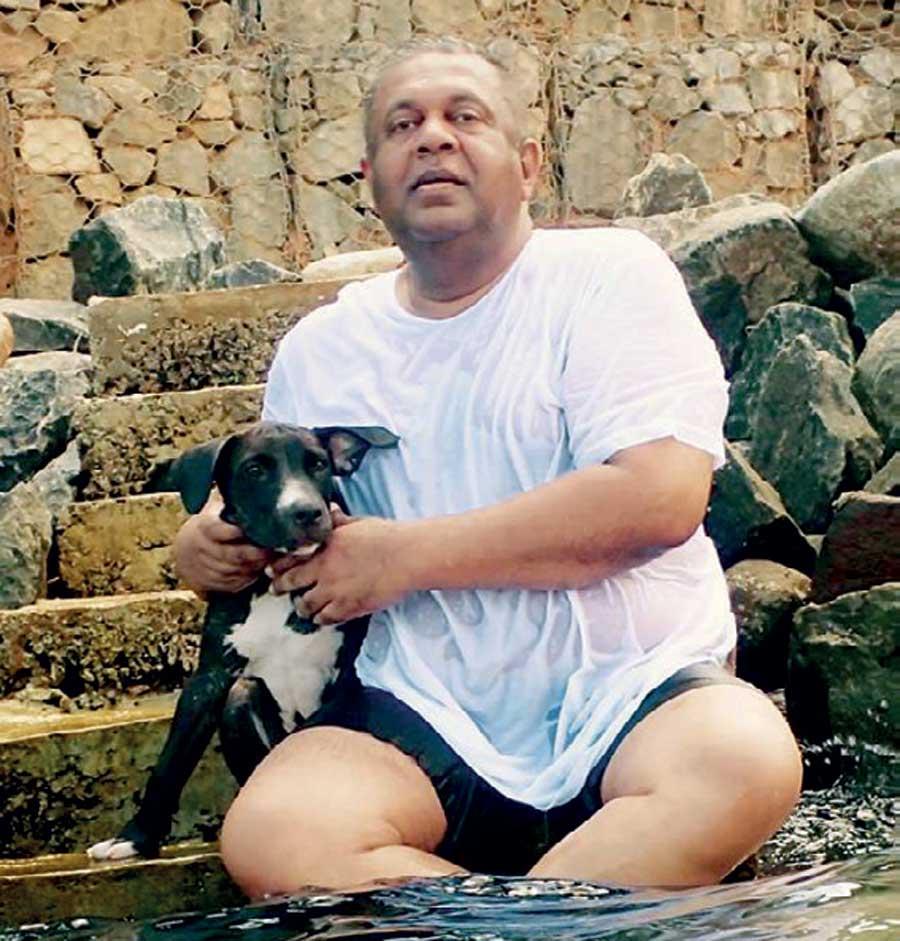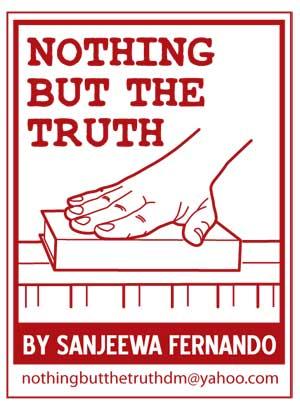The butterfly that flew away…! A Tribute to Mangala
I’d rather be a butterfly than a leech, Mr. President!

1 September 2021
Mangala Samaraweera was never at home in Sri Lankan politics. He was the embodiment of a political misfit. Although somemay have rued his decision to give up politics a year ago, he had realized that he had hardly a political base any longer for electoral success and that also; he could not do what he envisioned for his motherland being attached to a definite political affiliation. He had become so much a Sri Lankan, something that every politician pays lip service to while cashing in on the racial, religious, caste factors that divide the nation; that he could not look at the Sinhala, Tamil or Muslim electorate as a base to rely on. To that extent the exit from active electoral politics was correct. He was too universal a character to harvest success in terms of a geographical or demographical base. In that sense, he was ‘baseless’.
Mangala was not the typical Sri Lankan politician. But that was hardly the most unique thing about him. From being thrust in to limelight politics, with his friend Chandrika Bandaranaike Kumaratunga becoming the President, Mangala started his political journey as any other politician would. He developed Matara and worked hard in every portfolio he was entrusted ever since.
Spoke his mind aloud
 Yet in recent times Mangala’s name became tagged with controversy due to his outspokenness and liberal attitudes. He was a liberal by the true meaning of the word and had no hesitation in expressing it. In taking on the Bhikkus, Mangala was very brave not only politically, but even on a personal basis. Politically, coming from the heartland of the South, Mangala knew that he was distancing himself from his voter base, with its monolithic demography of predominantly Sinhala and Buddhist constituency. At the same time, given a history of intimidation, character assassination and even physical thuggery practiced over those who challenge that hegemony, he was exposing himself to attack in no small measure, which in fact came his way, from the Buddhist monks. Although he was constitutionally spot-on when he proclaimed that Sri Lanka was not a Sinhala Buddhist country but a land belonging to all, he was asking for trouble. But he knew that and did not fear thus setting him apart from one of his associates Ranil Wickremasinghe, who himself a liberal, yet prefers not to talk his mind for obvious political expediency. Mangala was a true Buddhist and a patriot.
Yet in recent times Mangala’s name became tagged with controversy due to his outspokenness and liberal attitudes. He was a liberal by the true meaning of the word and had no hesitation in expressing it. In taking on the Bhikkus, Mangala was very brave not only politically, but even on a personal basis. Politically, coming from the heartland of the South, Mangala knew that he was distancing himself from his voter base, with its monolithic demography of predominantly Sinhala and Buddhist constituency. At the same time, given a history of intimidation, character assassination and even physical thuggery practiced over those who challenge that hegemony, he was exposing himself to attack in no small measure, which in fact came his way, from the Buddhist monks. Although he was constitutionally spot-on when he proclaimed that Sri Lanka was not a Sinhala Buddhist country but a land belonging to all, he was asking for trouble. But he knew that and did not fear thus setting him apart from one of his associates Ranil Wickremasinghe, who himself a liberal, yet prefers not to talk his mind for obvious political expediency. Mangala was a true Buddhist and a patriot.
Mangala has always stood up for pluralism and for the rights of minority religions and races, he did not proceed to cut an electoral ‘niche market’ for himself among any of those segments whom he defended. In fact, due to his efforts to bring in reconciliation, which started from the the Sudu Neluma campaign during Chandrika’s time, he has been roundly criticized by Tamil politicians and has no particular voter base among the Tamil community, either. Then he tried bridging the ethnic gap with the Yahapalana experiment. Reconciliation is not beneficial to all, as Mangala learnt it, the hard way.
Secularism
When the 1972 constitution provided priority to Buddhism, whatever it meant, it created a direct conflict between the ideal of a secular republic and the aspiration of one race to supremacy over other communities and found its way to the second Republican constitution. It has frustrated the very objectives of secularism a Republican constitution envisages and sets to engender. Even politicians such as Ranil and Chandrika, who are not only secular leaders but liberals, were timid and wary of taking this Constitutional anomaly on. But not Mangala!
Mangala did change his political affiliations many times, seemingly out of sync with reality and outright disadvantageous to political prospects. Breaking away from the Rajapaksas with Sripathi Sooriyarachchi was one such move, at great risk. Mangala has publicly spoken about some of the political decisions he regrets, including advising Chandrika to take over the three ministries held by Ranil and the UNP in 2003, acquiescing with the majority of the UNP to break away from the Grand Old Party to form the SJB and most of all, not being able to object when Chandrika appointed Sarath Nanda De Silva as Chief Justice when Justice Mark Fernando was in line for the apex position in the Sri Lankan Judiciary. He was candid enough to admit his mistakes in public, to identify where he failed and to soldier on to rectify and if possible, remedy those.
Candidness
Mangala’s candidness and transparency was unprecedented in Sri Lanka. Even when it came to his personal life, he was not ashamed of admitting his alternative lifestyle, sexual orientation in particular. He was among the very few prominent persons, let alone politicians, who came out openly about this particular aspect of personality. Nor was he a pretentious politician who wanted to put up a macho image of himself of being brave and stoic. He admitted that his mother’s demise as one of the most devastating incidents of his life, confessing that he was a coward not being able to be near her at her death bed. He also recounted how upset he was when the news of President Chandrika was being bombed at the Town Hall and how he ran among hospital wards like an insane person looking for her. No, he never feared to admit traits of his character. He never wanted to cut an Alpha male, Tribal leader picture, something the masses wanted to see, while in private being as fearful, paranoid and diffident as a sick child.
In a context where politicians from the grass root level to the top queue up to take credit for things which they did and even, did not do, Mangala was a gentleman quite apart. For an example, when it was suggested that he was instrumental in getting down millions of Pfizer vaccines from the US State Department, due to his personal acquaintance with Samantha Powell, Mangala bluntly declined being instrumental in it saying that countries such as the US were not in the habit of doing such things on personal requests. He believed in systems and structures; not individuals and favourations.
When, Ranil Wickremasinghe was called a ‘butterfly’ during the notorious ‘Constitutional Coup’ of October 2018, it was Mangala who came out in support of the entire LGBTQ community slandered by the comment. He stated that it was ‘better to be a butterfly than being a leech’. He was not afraid of being a butterfly. Mangala was a beautiful and a brave butterfly, at that!
Within hours after Mangala’s demise, I paid poetic tribute on my Facebook page:
Fly away, you beautiful Butterfly!
To any place in the outer space;
Anywhere but this shithole: this godforsaken aridity of intellect;
Filled with the intolerant stench of pseudo- Bullshittism!
Any place where plurality rains and liberalism reigns.
And a man may live his sixty years or so
Unburdened by a yoke, two and a half millennia old!
Fly away, you beeeeeautiful Butterfly....!

No comments:
Post a Comment
Note: only a member of this blog may post a comment.